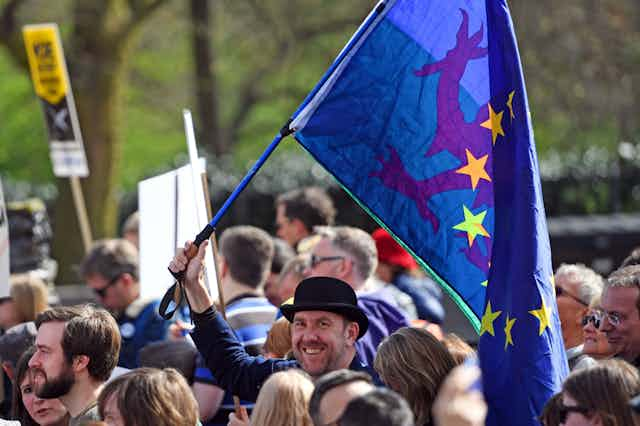Identity politics has become a phrase of common currency in recent years, yet it is often painfully, and badly, used. Generally, it is wheeled out in a negative context. Take UK environment minister Michael Gove and Tim Farron, former leader of the Liberal Democrats, for example. Both sought to distance themselves from such thinking in two separate speeches given on the same day earlier this year. Gove said “identitarians” undermine liberal politics, while Farron condemned identity politics as a “poison”.
In fact, it seems the term is used almost entirely negatively, by people who wish to argue against the concept. However, they rarely stop long enough to adequately, or meaningfully, define the term to a point of usefulness. We should recall George Orwell’s remark on the word “fascism” in his essay Politics and the English Language; that it has come to mean little more than “something not desirable”. In this sense, “identity politics” has become the new fascism – or indeed the new centrism, neo-liberalism, Blairism or populism. It is simply shorthand for a concept or idea that you dislike.
But underlying each of these terms is something worth clearly identifying and discussing. After all, there is such a thing as fascism – there are clearly fascists. The same is true of identity politics. There is clearly something called identity out there, and it clearly plays a role in politics. But what is it, and should it be taken seriously?
As I’ve argued, identity is the image someone has of themselves. This image is made of different components – football teams we support, cities we live in, music we listen to, and more. This is not an effort to give a final definition, but it is an effort to give a useful one.
Identity politics, at face value, is a politics that speaks to our image of ourselves. Immediately, we face a trap – it’s easy to declare all politics identity politics, because everything relates to our identity. But this is to erase the other things that politics is about – such as healthcare, taxes, and other issues that concern who gets what. It risks conceding the argument to those who think that “identity politics” is a major, if not the greatest, problem with politics today, because those voices so often proclaim that “identity politics” is taking over, and destroying the space for “normal” or “good” politics.
A more satisfactory position is to argue that all politics involves an element of identity. Instead of disregarding it, we should seek to understand it – but we should acknowledge that this isn’t a sufficient condition for understanding any one issue. This creates space for meaningful and interesting discussions around identity, but also an awareness that either seeking to remove or exclusively focus on identity as the aspect of politics worth discussing is ultimately going to produce incomplete answers.
How can we apply this practically? Take, for example, the discussion over Brexit. If we discuss Brexit purely as a matter of economics – of the allocation of resources, the openness of countries to trade, the free movement of capital, and so on – we might produce an “answer” to Brexit that seemingly reconciles all the different economic issues and produces an optimal outcome. For the sake of argument, let us imagine that is that the UK becomes rather like Norway, and stays in the single market. Yet, that solution proves wildly unpopular – and likely would. Why?
Because it would exist in tension with the identities of many people, who feel that it would be an unacceptable infringement on aspects of the country that they identify with – or the values that form a part of their identity – through the lack of control on immigration or, say, over new rules that the UK would have to follow, or so on. Those who back a Norway-style deal might, rightly in this scenario, argue that the deal they had was the most efficient in economic terms. But if it has no resonance with identities – or worse, actively is seen as being hostile to them – then it will struggle to gain ground.
Ultimately, identities are the images that we have of ourselves. Having that self-image challenged is incredibly disruptive and it can be very difficult for us to adapt that image in light of the challenge. Most identity changes occur over longer periods of time, and with less tension and conflict.
If anything, therefore, identity politics should call on us to reflect on what it is about what we do that angers others so much, and how we can reconcile the different aspects of our identities in a way that produces mutually beneficial settlements. It should be a means to see a vital aspect of all politics, and how it plays a key role in shaping how people respond to us. On that ground alone, identity politics is worth understanding.

